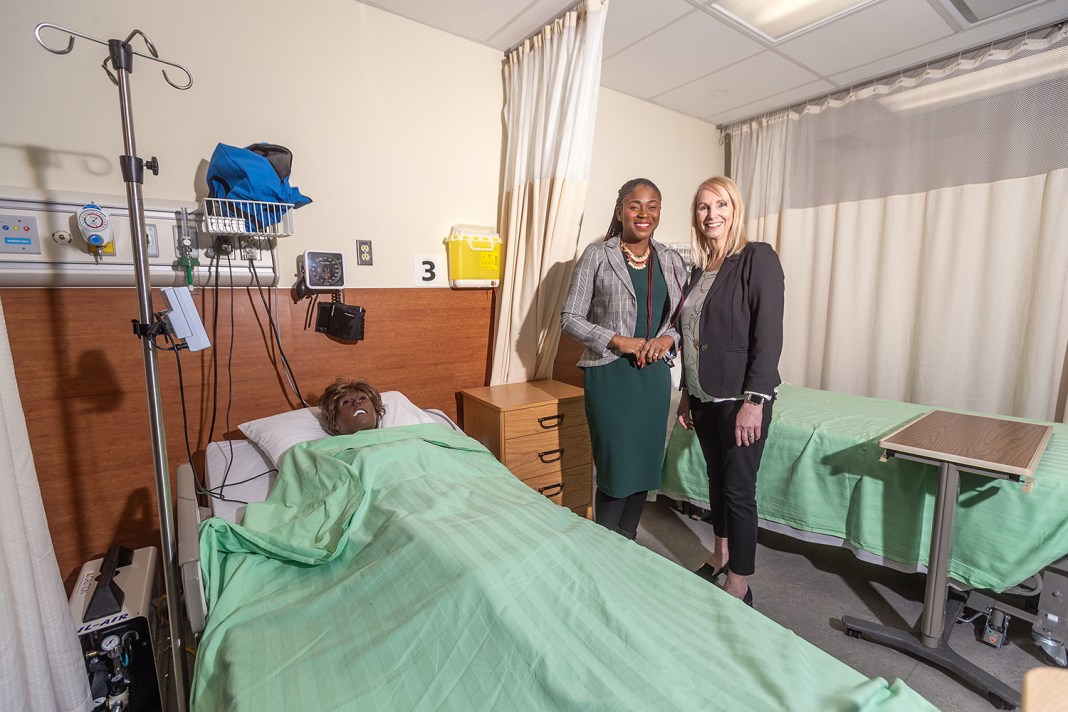Calgarians who have visited a health care facility lately have likely already felt that pinch that comes with not enough health care professionals being available to treat people’s health care needs.
On Jan. 15, Bow Valley College and the Calgary Region Immigrant Employment Council (CRIEC) were recipients of $9.5 million of a total $86 million in federal government funding from the Foreign Credentials Recognition Program, to provide support services for foreign-trained nurses alongside credentialing for work in Alberta.
The outcome of bringing in already trained professionals, and bringing their credentials up to Alberta’s standards, could be a way to address a critical shortage of nurses in the province.
“We wanted to create a system of services where we can support that client from end to end, and reduce barriers so when an international trained nurse chooses Canada, they don’t come into Canada and face significant barriers and challenges to actually enter the job market,” said Dr. Nketti Johnston-Taylor, CEO of CRIEC.
“Right now, it’s a very arduous process not quite knowing, especially if you’re not one of these countries that have been chosen to be expedited. What this program does, it enables us to reach the clients before they even get to Canada through our pre-arrival services.”
She said that supports would be provided to nurses throughout the process, including mentoring, job coaching and job readiness training, and support through the exam process.
“The difference now is that you’ve got this coordinated approach, this end-to-end coordinated approach, as opposed to one that is less so coordinated,” said Johnston-Taylor.
The intended outcome, said Dr. Johnston-Taylor, is to ensure nurses who can play a role in helping to end the healthcare crisis in the province are not discouraged from becoming Alberta nurses by the immigration and certification process.
The funding will also be used to identify new sources of nursing hires internationally.
Dr. Johnston-Taylor said that research will be on countries that have the best potential to provide nursing candidates outside of the previously announced New Pathways countries of Australia, India, Ireland, Jamaica, New Zealand, Nigeria, the Philippines, the United Kingdom, and the United States.
As a result of the funding and expected demand to help immigrate trained nurses into Alberta, Dr. Johnston-Taylor said that CRIEC would be greatly expanding its operations.
“It means a lot to us because it’s actually our single highest funding that we’ve received ever, per year. So, this is absolutely fantastic for us. We will be essentially doubling our operating budget and almost doubling our staff,” she said.
Bow Valley College to provide educational training
Nora Maclachlan, Special Advisor for Health at Bow Valley College, said that the funding announcement from the federal government would support the college’s partnership in providing English language training, intercultural competencies and healthcare language training, and a new micro-credential.
“What we’re focused on is the other 184 countries that still need to have support, particularly perhaps in their English language learning and then topping up their competencies. So it will really expedite the system for the employers who are waiting for these folks,” she said.
“They’re also paying a lot of money to these organizations to have others do this work for them. So CRIEC and Bow Valley College will be able to help make an efficient system, and then we will broadly move that forward to other provinces, other jurisdictions, and eventually to other health professionals as well.”
Maclachlan said that the college is expecting to support 266 nursing students—and while acknowledging that on paper that doesn’t sound like a large number, the applied research team will be using research from this initial process to help develop greater capacity for nursing students in future cohorts.
“It is a pretty big deal, and our applied research team is very excited. We’re already in the top 50 of research organizations, and so what we’d like to do is just keep building up our repertoire in that area and really push things forward and applied research as well,” she said.
Other recipients for funding from the federal government included Alberta Health Services, which received nearly $10 million for their SMART initiative to integrate internationally-educated healthcare professionals into healthcare positions aligned with their training and goals.
The Alberta International Medical Graduates Association received $1.4 million to improve web-based job-seeking tools for international medical graduates.



